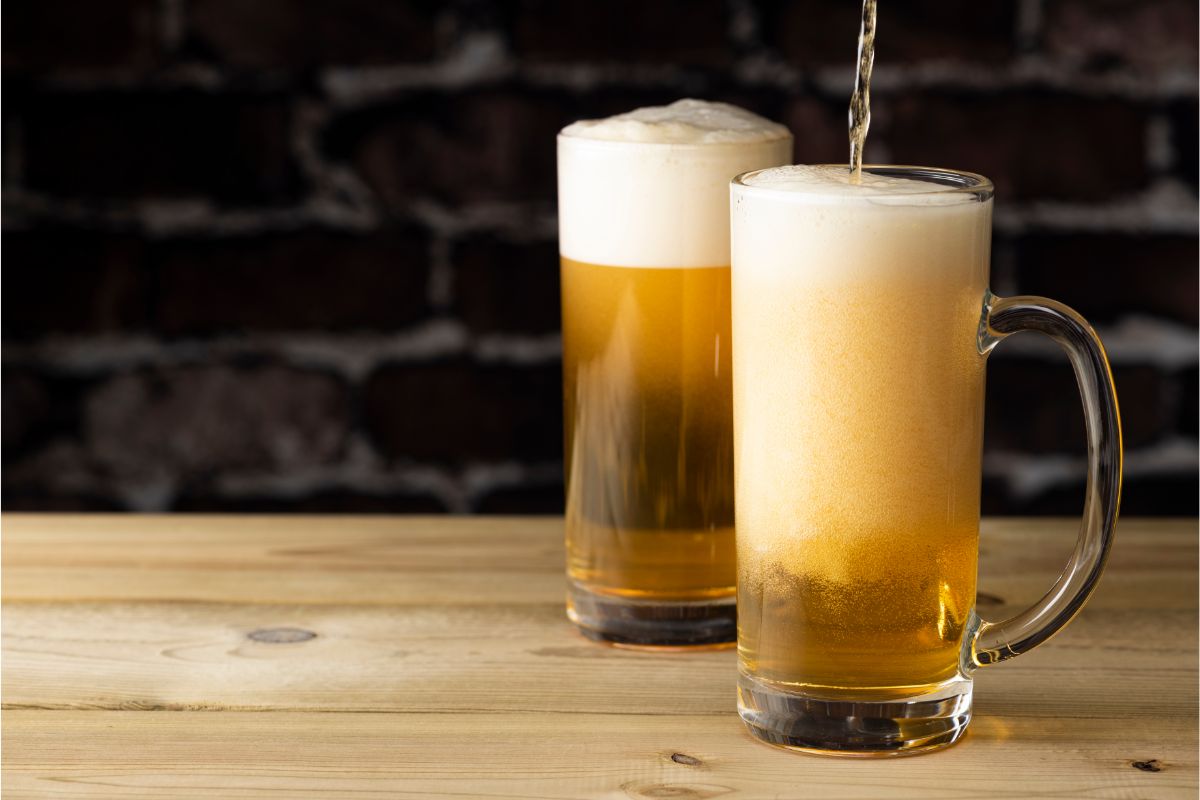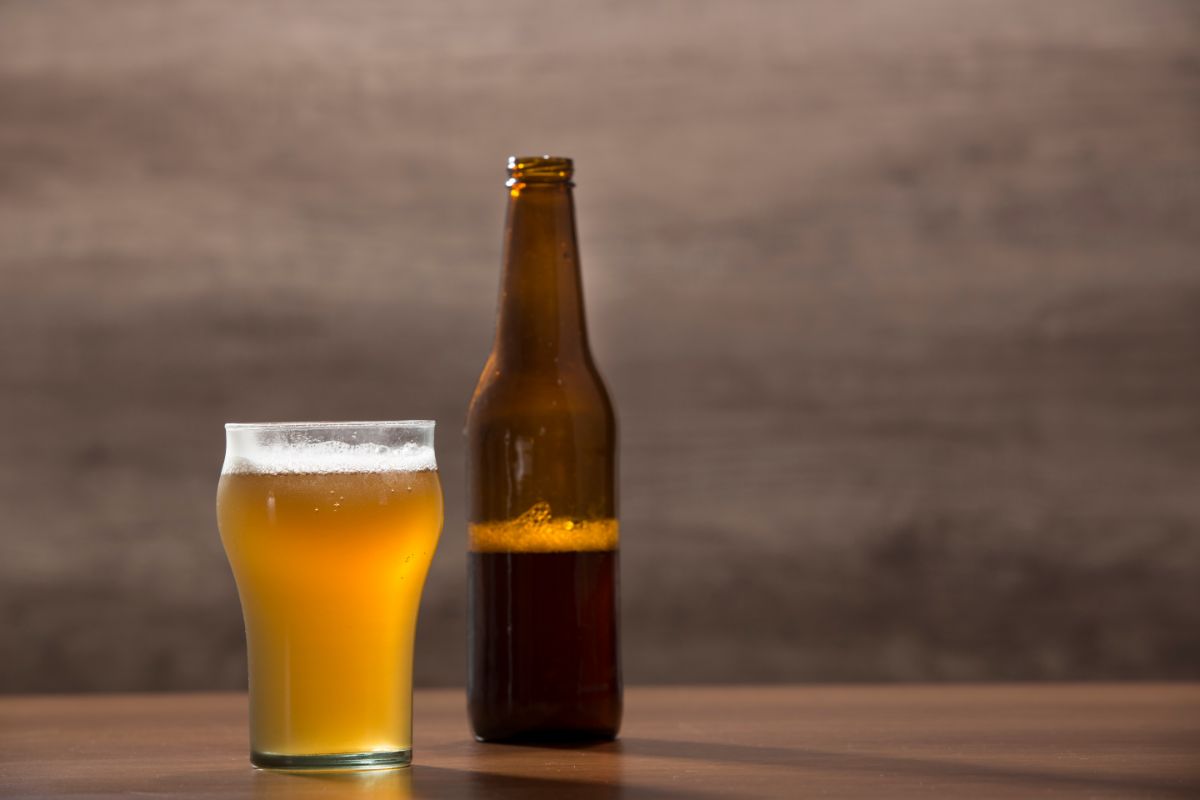Making your own beer can be an incredibly enjoyable and rewarding experience. It’s fun trying things out, and witnessing some of the different nuances of flavor you can create.
If you’re just getting started out with making your own beer, then chances are you have a whole host of questions.

Perhaps the most prevalent one being, how do you actually carbonate it, so that it feels like you’re actually drinking beer?
Well, thankfully, the process isn’t all that complicated, and we’re going to be covering it below.
To find out more about making your own beer creations, simply keep reading, as we take a closer look.
What Really Is Carbonation?
So, before we jump straight in and give you all the info you need on carbonating your own beer, first we’re going to be taking a closer look at carbonation itself.
What really is carbon? Well, it’s essentially carbon dioxide, so the more gas you put in your beer, the fizzier it’s going to be.
This varies from beverage to beverage, and sparkling wine has almost three times the amount of carbon as beer. So the amount will vary depending on what you make.
The amount of carbon you have packed into your beer will also depend on how cold the beverage is when you’re placing the gas inside.
The colder the solution is, the more CO2 can actually be packed inside, so you want to make sure that you’ve got the temperature of your beer in check before carbonating it, or otherwise it will be way too fizzy.
What Are Some Of The Things I Can Use To Carbonate Beer?
Now that we’ve taken a look at what carbonation is, and why it’s important to get the correct volume, we can move on to discuss some of the different items you can use to carbonate your beer.
- Corn Sugar – This is probably the most popular option when it comes to carbonating your own beer, and that’s because it’s super cheap to buy, and it won’t add any additional flavors to your beverage.
- Honey – Another popular option when it comes to carbonating your own beer is honey. However, if you’re planning on using honey to carbonate your beer, you need to be sure of the volume. Honey can be particularly tricky because it’s hard to keep track of the gravity exhibited by the ingredient.
- Sugar – Another option for carbonating your beer, is dark sugar or molasses. These are great if you want to create a darker ale that’s full of intense flavors. In addition to this, you can use white sugar too in order to create a pale ale that’s similar to the varieties produced by corn sugar.
- Malt – Finally, you can also use malt in order to successfully carbonate your beer, and this is usually required in large quantities to start the carbonation process.

Carbonating Beer By Bottle
So, how do you actually get started with the process of carbonating your own beer?
Well, the process is actually super easy, and carbonating it by the bottle is a popular option, especially for those who are just getting started out.
In order to carbonate your beer by the bottle, all you have to do is grab your corn sugar, or carbonating ingredient, and mix it with water to form a liquid solution.
After you’ve done this, you can go ahead and add it to the beer, bottling it immediately afterward in order to make sure it carbonates properly.
You will need to store the beer at approximately 70 degrees fahrenheit, and leave it for approximately 3 weeks in order to allow it to carbonate fully.
Carbonating via this method can actually extend the shelf life of your beer too.
Carbonating Beer By The Keg
The most common and popular way of carbonating your own beer is to do it by the keg.
This method is also relatively straightforward, and involves putting approximately 35 PSI of carbon into your beer keg, (see also: How To Carbonate Beer In A Keg)then rolling it. By giving the keg a shake, you’re actually able to quicken the carbonation process.
If your beer is cold (see also: How To Cold Crash Beer?)enough, and you’ve rolled it plenty of times, you could even see your beer being ready to drink within a mere 24 hours. This is a great process if you’re looking for fast results.
Can You Over Carbonated Beer?
The answer to this is yes, absolutely. You can most definitely overcarbonated your beer, and this will not only affect the consistency of your beer, but the flavor profile too.
If you’ve over carbonated your beer previously, then you’ll know that it displays an incredibly sharp flavor.
It will also create a vast amount of foam on the surface of your beer, wasting a lot of the product. You’ll know that you’ve overcarbonated your beer right away, as it causes an explosive noise upon opening.
Final Thoughts
To sum up, carbonating your beer is a relatively easy process, the key thing to keep in mind is how much carbon you’re planning to add to the liquid.
Adding too much carbon will cause your beer (see also: Is Beer Carbonated?)to be incredibly foamy, and create an unpleasant, sharp flavor.
If you’re just getting started out with the beer making process, we’d recommend following one of the methods outlined above.
- StockHouseBrewing.com is being acquired by MomentumBrewHouse.com - October 24, 2023
- MomentumBrewHouse.com Acquires EmpiricalBrewery.com - August 31, 2023
- How Many Calories Are In A Bottle Of Beer? - May 24, 2023
